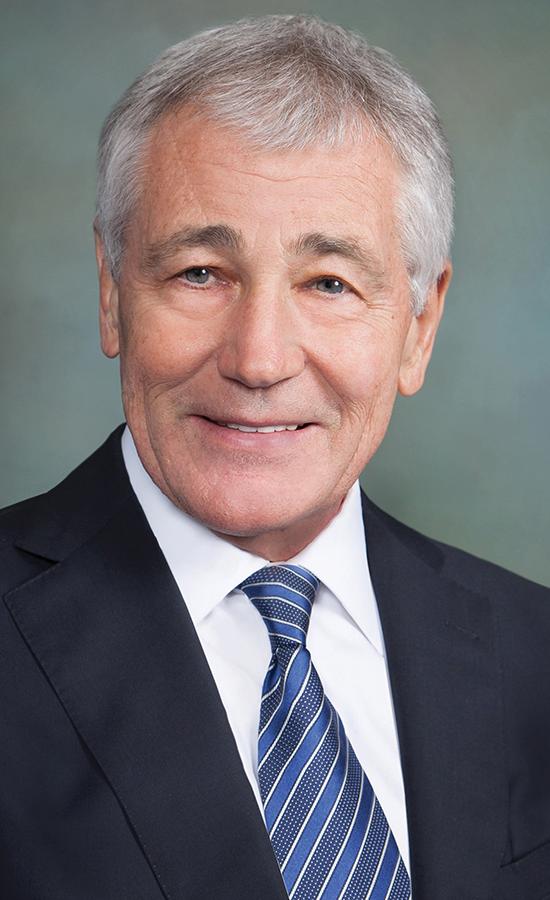The military can counter domestic social injustices and correct foreign policy mistakes by increasing accountability and responsibility within its leadership, former Secretary of Defense and former Sen. Chuck Hagel (R-Neb.) said April 24.
Hagel spoke at a fireside chat, an informal conversation sponsored by the Georgetown Journal of International Affairs and moderated by Cristine Pedersen (SFS ’16, GRD ’20), its graduate editor-in-chief. Hagel spoke highly of the military’s ability to promote American interests in the face of challenging issues, albeit by emphasizing commitment to American values over making brash military decisions.

The U.S. armed forces frequently involves itself in conflicts without considering the nuances of different backgrounds, according to Hagel, who served in the U.S. army infantry in Vietnam from 1967 to 1968.
“We didn’t understand the people,” Hagel said. “We didn’t understand the culture. We didn’t understand the dynamics in play.”
Hagel identified mistakes in the American foreign policy of previous administrations toward countries like Afghanistan and Iraq, explaining the importance of culturally appropriate diplomacy to avoid unwanted consequences.
Future alliances in international relations will be as necessary to American foreign policy as they have been in the past, according to Hagel.
“Alliances are critical, if you work with people. That’s why we built the world order we did after World War II,” Hagel said. “We weren’t going to be able to fix every problem and bring everybody to the table and let’s all now agree.”
Before the Trump administration, the military led the way with inclusion of the LGBTQ community, demonstrating that the military has the power to set the precedent for cultural change and acceptance in the future, according to Hagel.
President Donald Trump announced a ban in July 2017 on transgender people serving in the military. Trump tweeted that there are “tremendous medical costs” associated with services like hormone therapy, sex-reassignment surgery and legal processes involved with transitioning to justify the ban. Amid litigation over the policy in U.S. courts, the U.S. Supreme Court allowed the ban to go into effect in January 2019.
To uphold the military’s commitment to American values, politicians must put a greater emphasis on ethics, according to Hagel.
“If you have a leader without character, it’s not going to end well. Character embodies integrity, ethics — not because it’s the law, but because it’s the right thing,” Hagel said. “Unfortunately, in our politics today, I think we have really blown through ethical politics in the U.S.”
The U.S. armed forces is dedicated to respecting the dignity of every individual, which sets an example for the rest of the United States to follow on issues like racism and sexual misconduct, said Hagel.
“You have a job to do in the military, and you’re not confused by that job,” Hagel said. “And you don’t care, if you’re in combat especially, if the people around you are gay, transgender, black, white, Hispanic — not when you’ve gotten bullets coming at you.”
The U.S. armed forces must take initiative in addressing sexual harassment, since reporting has increased beginning in 2013, according to Hagel. From October 2012 through June 2013, reports of sexual harassment in the military increased nearly 50% over the same period a year earlier.
Pedersen experienced sexual harassment while serving in the U.S. Marine Corps as an Arabic translator, which she detailed in The New York Times Magazine. In one instance, an inebriated officer publicly kissed Pedersen on the cheek while she was in uniform. None of her harassers faced repercussions.
Despite current problems with the military and political polarization, the new generation of political leaders will have a positive effect on the country, according to Hagel.
“I think there are very good people in politics, thank God for that,” Hagel said. “And I think the young generation that’s coming into politics are even better.”
Hoya Staff Writer Sana Rahman contributed reporting.




















